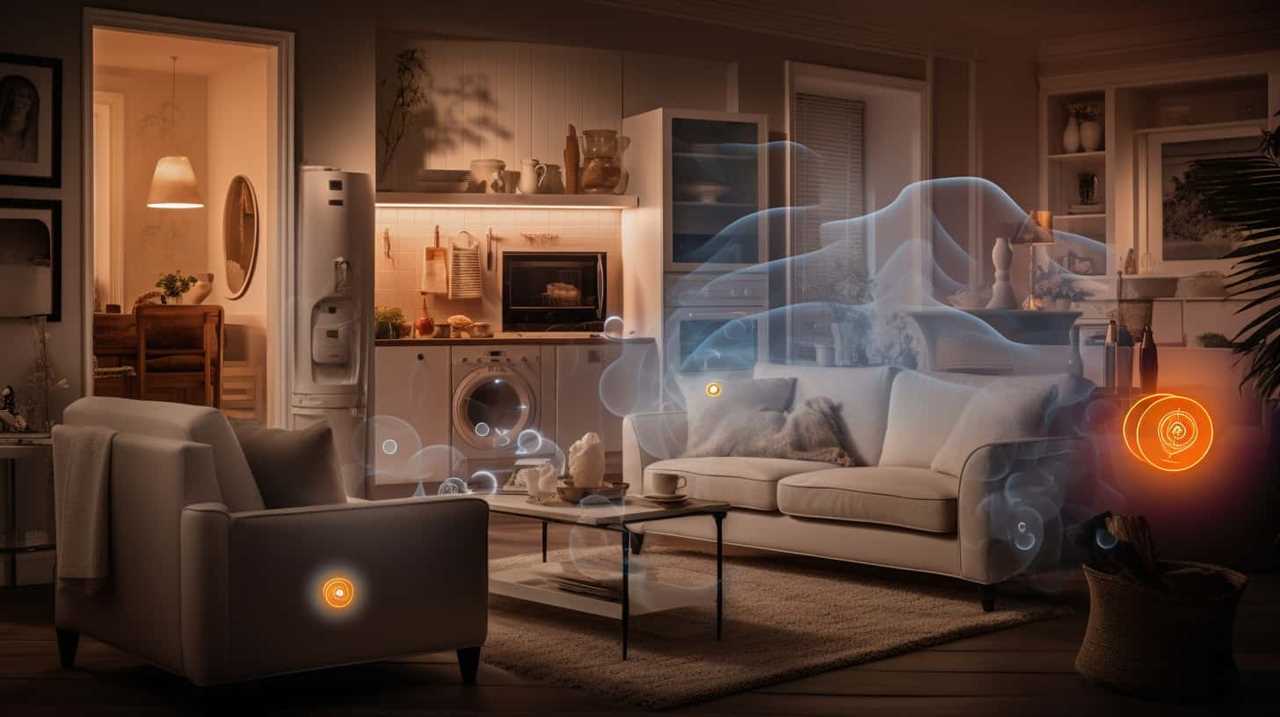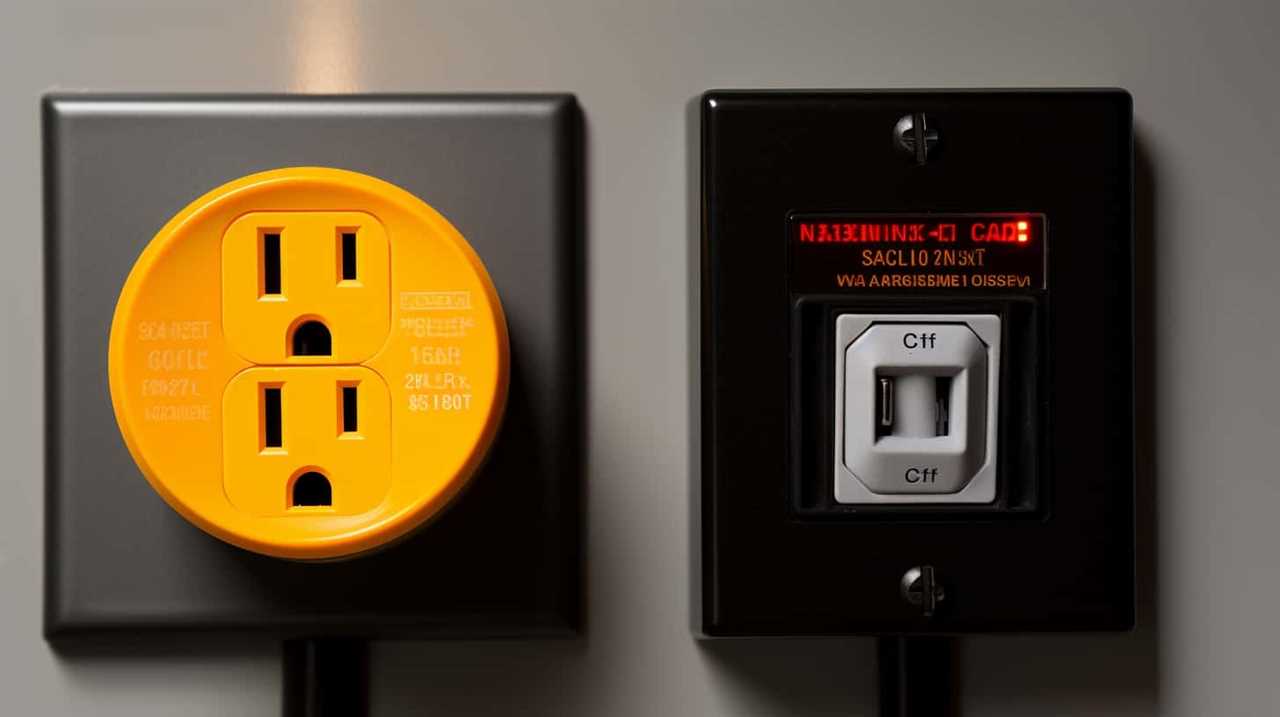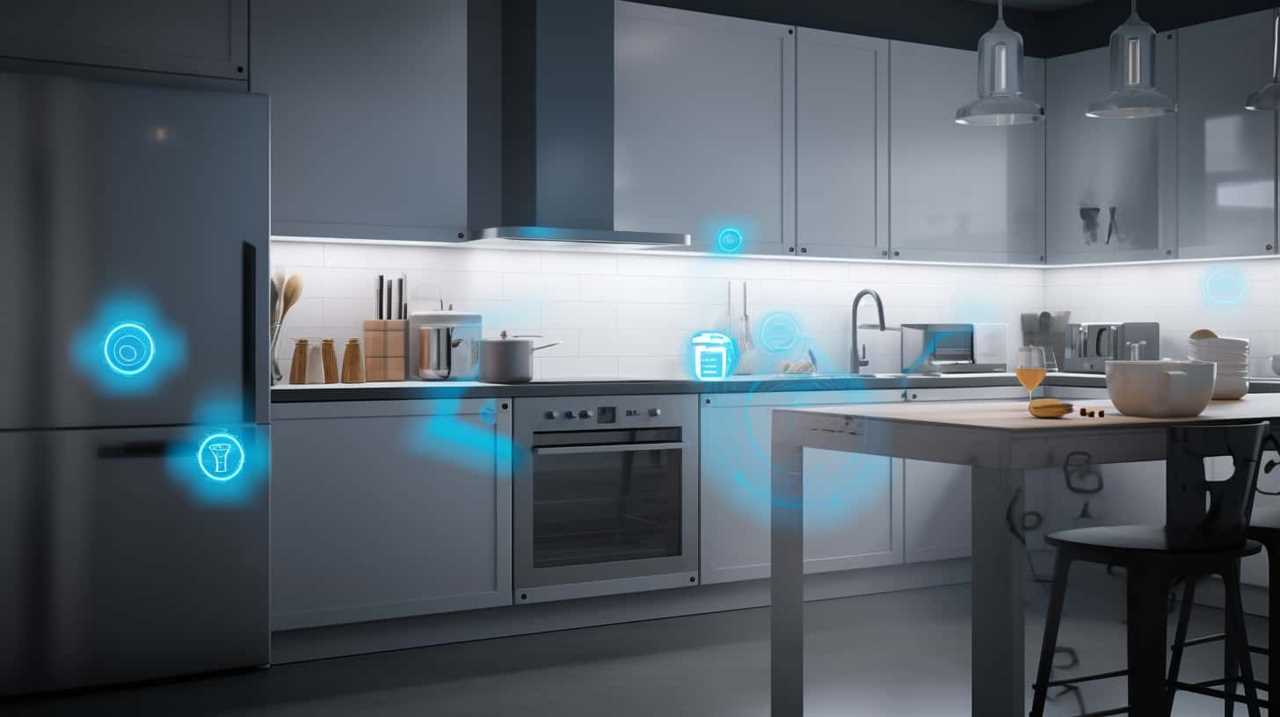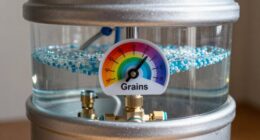Curious about which appliances consume the most energy in your home? We have the information you’re looking for.
In this article, we’ll reveal the culprits responsible for draining your electricity and racking up your bills. From refrigerators to air conditioners, water heaters to televisions, we’ll break down the energy usage of each appliance and provide you with the knowledge to make more informed choices.
Get ready to uncover the truth about your energy-hungry devices.
Key Takeaways
- Refrigerators and air conditioners are two of the appliances that consume the most energy in homes.
- Upgrading to energy-efficient models can significantly reduce energy usage and lower electricity bills.
- Alternatives to air conditioning, such as using fans or passive cooling techniques, can help minimize energy usage.
- Water heaters and appliances like dryers, dishwashers, ovens, and washing machines also contribute to energy consumption and can benefit from energy-saving practices.
Refrigerators
Refrigerators consume a significant amount of energy in our homes. As appliances that run 24/7, their energy consumption can add up quickly. However, there are ways to make refrigerators more energy efficient.

Upgrading to an energy efficient refrigerator can reduce energy usage by up to 20%, resulting in significant cost savings. These refrigerators use advanced insulation, compressors, and fans to minimize energy waste.
Additionally, regular maintenance is crucial to keeping refrigerators running efficiently. Common refrigerator problems, such as dirty condenser coils or faulty door gaskets, can lead to increased energy consumption. Cleaning the coils and replacing worn-out gaskets can improve refrigerator efficiency.
Air Conditioners
When it comes to air conditioners, it’s important to consider energy-efficient models. These models can significantly reduce the amount of energy consumed, resulting in lower electricity bills.
Additionally, it’s worth exploring alternatives to air conditioning, such as using fans or implementing passive cooling techniques, to further minimize energy usage.

Energy-Efficient AC Models
After researching various models, we found that energy-efficient AC models can significantly reduce electricity consumption. When it comes to cost-effective options and energy-saving tips for air conditioners, consider the following:
- Opt for units with a high Seasonal Energy Efficiency Ratio (SEER) rating. These models consume less energy to cool your space effectively.
- Look for AC units with programmable thermostats. This feature allows you to schedule temperature adjustments based on your needs, reducing unnecessary energy usage.
- Consider investing in inverter technology. These models adjust compressor speed to match the cooling demand, resulting in energy savings.
By choosing energy-efficient AC models and implementing these tips, you can reduce your electricity consumption and lower your environmental impact.
Now, let’s explore their impact on electricity bills.
Impact on Electricity Bills
As we explore the impact of energy-efficient AC models on electricity bills, it becomes evident that these units can lead to significant cost savings and reduced energy consumption.

Energy-efficient air conditioners are designed to use less energy while still maintaining optimal cooling performance. This not only benefits the environment but also helps homeowners save on their electricity bills. According to studies, energy-efficient AC models can reduce energy consumption by up to 30%.
To further reduce energy usage, here are some tips to keep in mind:
- Set your thermostat to a higher temperature when you’re away from home.
- Use ceiling fans to circulate cool air.
- Ensure proper insulation in your home.
Alternatives to Air Conditioning
Now let’s explore some alternatives to air conditioning (AC) that can help reduce energy consumption and provide cooling comfort in your home.
When it comes to cost-effective options and natural cooling methods, here are some ideas to consider:

- Ceiling fans: Install ceiling fans in your home to create a gentle breeze and improve air circulation. They consume significantly less energy compared to air conditioners and can provide a cooling effect.
- Window coverings: Use blinds, curtains, or shades to block out the sun’s heat during the hottest parts of the day. This can help maintain a cooler temperature indoors without relying heavily on air conditioning.
- Cross-ventilation: Open windows on opposite sides of your home to create a natural flow of air. This technique allows fresh air to enter and hot air to escape, providing a refreshing breeze.
Water Heaters
Are you looking to save energy and reduce your utility bills? One appliance that can consume a significant amount of energy is your water heater.
In this section, we’ll discuss energy-efficient water heaters and explore cost-saving alternatives that you can consider. By making smart choices when it comes to your water heater, you can’t only save money but also contribute to a more sustainable future.
Energy-Efficient Water Heaters
We recommend investing in energy-efficient water heaters to reduce energy consumption and save money. Upgrading to energy-efficient options for water heaters comes with several benefits. Here are three reasons why you should consider making the switch:
- Lower energy bills: Energy-efficient water heaters use less energy to heat water, resulting in reduced energy consumption and lower utility bills.
- Environmental impact: By using less energy, energy-efficient water heaters help to decrease greenhouse gas emissions and contribute to a more sustainable future.
- Longer lifespan: Energy-efficient models often have advanced features that increase their durability and lifespan, saving you money in the long run.
Investing in energy-efficient water heaters not only helps you save money but also reduces your environmental footprint. Make the switch today and enjoy the benefits of a more efficient and sustainable water heating solution.

Cost-Saving Alternatives Available?
To further explore cost-saving alternatives for water heaters, let’s delve into the options available in the market.
When it comes to energy-saving tips for water heaters, one option is to switch to a tankless water heater. These eco-friendly appliances only heat water when it’s needed, eliminating the standby energy losses associated with traditional storage tank water heaters.
Another cost-saving alternative is to install a heat pump water heater. These units use electricity to move heat from the air or ground to heat the water, making them highly efficient.
Additionally, insulating your water heater and pipes can help reduce heat loss and save energy.

Clothes Dryers
Clothes dryers consume a significant amount of energy when in use. If you’re looking for cost-effective options with lower energy consumption, consider the following:
- Gas-powered dryers: These dryers use natural gas as a fuel source, which can be more cost-effective compared to electric dryers. They also tend to dry clothes faster, reducing overall energy usage.
- Heat pump dryers: These innovative dryers use a heat pump to extract moisture from clothes, resulting in significantly lower energy consumption. Although they may have a higher upfront cost, they can save you money in the long run.
- Energy-efficient models: Look for dryers with an Energy Star label. These models have been certified to meet strict energy efficiency guidelines, helping you reduce energy consumption and save on utility bills.
Dishwashers
One of the most energy-consuming appliances in our homes is the dishwasher. When it comes to energy efficiency, not all dishwashers are created equal. Investing in an energy-efficient dishwasher can help save both energy and money in the long run. Here is a comparison table of different dishwasher models and their energy consumption:
| Dishwasher Model | Energy Consumption (kWh/year) | Annual Operating Cost ($) |
|---|---|---|
| Model A | 300 | $40 |
| Model B | 400 | $50 |
| Model C | 500 | $60 |
| Model D | 200 | $30 |
As seen from the table, Model D is the most energy-efficient option, consuming the least amount of energy and costing the least to operate annually. To further reduce energy consumption and save money, here are some cost-saving tips for using your dishwasher effectively:
- Run full loads to maximize efficiency.
- Use the energy-saving mode or eco-cycle, if available.
- Avoid using the dishwasher’s drying cycle and opt for air drying instead.
- Regularly clean the dishwasher’s filters to ensure optimal performance.
Electric Ovens
Now let’s shift our focus to electric ovens, another significant energy-consuming appliance in our homes. When it comes to energy efficiency, it’s important to consider the cooking methods used in electric ovens. Here are three energy efficient cooking methods to keep in mind:

- Convection cooking: This method uses a fan to circulate hot air inside the oven, reducing cooking time and energy consumption.
- Preheating: By preheating the oven to the desired temperature before placing food inside, you can ensure that the oven doesn’t need to work harder to reach the desired temperature.
- Batch cooking: Instead of using the oven for small meals, consider cooking larger batches and reheating leftovers. This reduces the overall cooking time and energy usage.
While electric ovens are commonly used, it’s worth noting that gas ovens tend to be more energy efficient. They provide instant heat and require less energy to maintain a consistent cooking temperature.
Washing Machines
How much energy do washing machines consume on a regular basis?
Washing machines are essential household appliances that play a significant role in our daily lives. However, they can also be one of the biggest energy consumers in our homes. On average, a washing machine uses around 400 to 1,200 watts of electricity per hour of use. This energy consumption can add up quickly, especially if you do multiple loads of laundry each week.
In terms of environmental impact, the energy used by washing machines contributes to greenhouse gas emissions and the depletion of natural resources. Therefore, it’s important to choose energy-efficient models and adopt energy-saving practices, such as using cold water, running full loads, and air drying when possible, to reduce both energy consumption and environmental impact.

Televisions
Moving on to televisions, it’s important to consider their energy consumption in relation to household appliances. When it comes to energy consumption, televisions can vary greatly depending on their screen size and technology. Here are a few key points to keep in mind:
- Screen Size: Larger televisions tend to consume more energy than smaller ones. This is because they require more power to illuminate the larger display area.
- Energy Efficiency: Newer television models are designed to be more energy-efficient. Look for TVs with Energy Star ratings, as they meet strict energy efficiency guidelines set by the Environmental Protection Agency.
- Display Technology: Different display technologies have different energy requirements. For example, LED TVs tend to be more energy-efficient compared to plasma or CRT televisions.
Frequently Asked Questions
How Can I Reduce the Energy Consumption of My Refrigerator?
To reduce refrigerator energy consumption, we can follow these tips for efficient refrigerator use: adjust the temperature settings, ensure proper insulation, avoid overstocking, and clean the coils regularly.
Are There Any Energy-Efficient Alternatives to Traditional Air Conditioners?
Energy saving cooling methods can help reduce energy consumption. Fans, for example, are an efficient alternative to traditional air conditioners. They provide a cooling breeze and have the added benefit of using less energy.
What Factors Should I Consider When Choosing an Energy-Efficient Water Heater?
When choosing an energy-efficient water heater, we consider cost-effective options and maintenance requirements. It’s important to weigh factors such as insulation, fuel type, and energy efficiency ratings to make an informed decision.

Are There Any Eco-Friendly Options for Clothes Dryers?
There are eco-friendly drying methods and energy-efficient laundry appliances available. It’s important to consider these options when looking for ways to reduce energy consumption and make your laundry routine more sustainable.
How Can I Determine the Energy Consumption of My Dishwasher?
To determine the energy consumption of our dishwasher, we can check the manufacturer’s label or manual. Additionally, we can use an energy monitor to track its usage. To save energy, we can run the dishwasher with full loads and use energy-saving settings.
Conclusion
So, after diving into the world of energy-guzzling appliances, it’s clear that our dear old refrigerators take the crown. These cold-storage powerhouses consume more energy than a marathon runner on a hot summer day.
But let’s not forget about the air conditioners, water heaters, and other energy-hungry culprits lurking in our homes. It’s time we start giving these appliances the side-eye they deserve and consider more energy-efficient options.

Because hey, saving the planet and our wallets can be pretty cool too.









